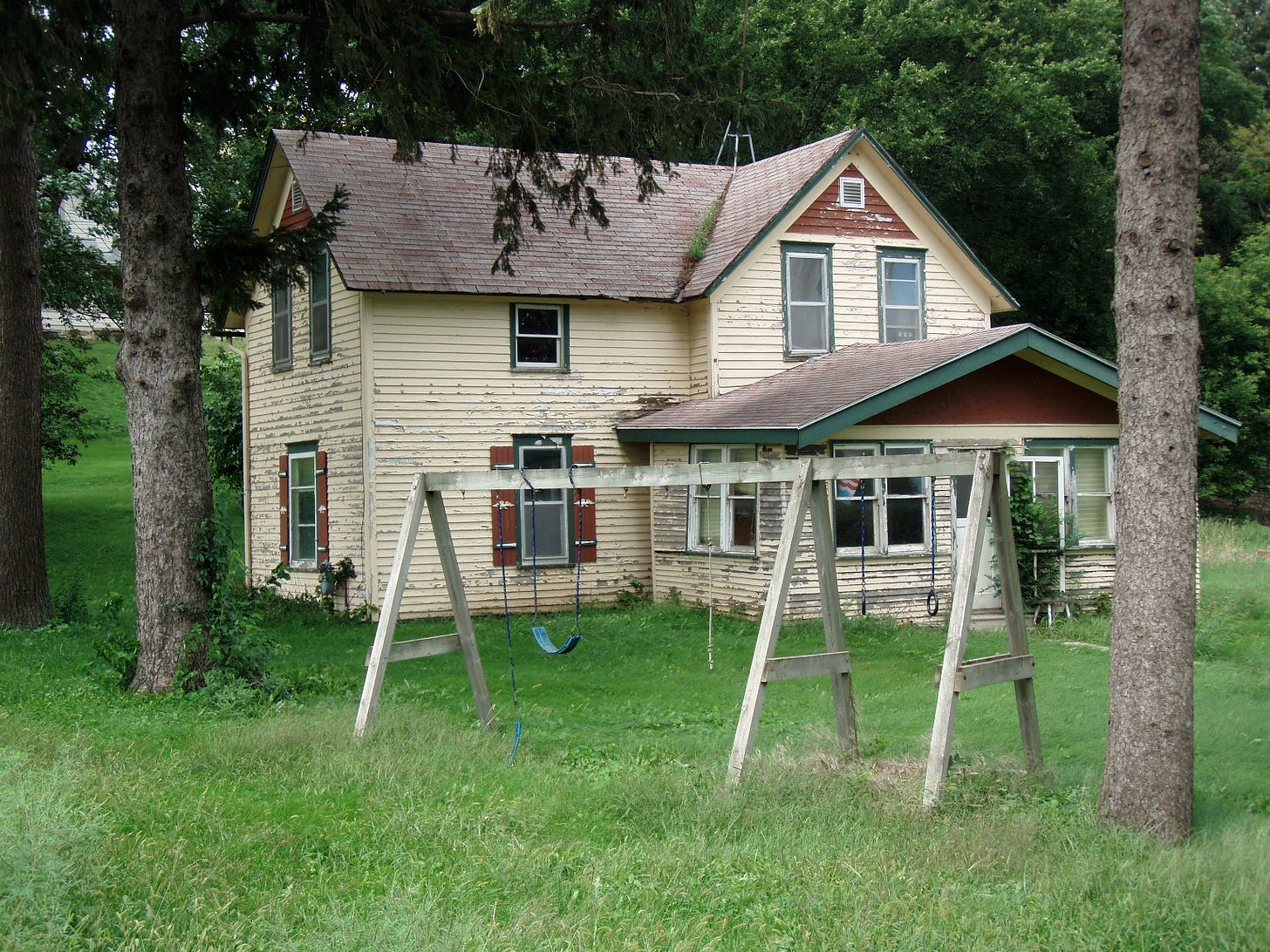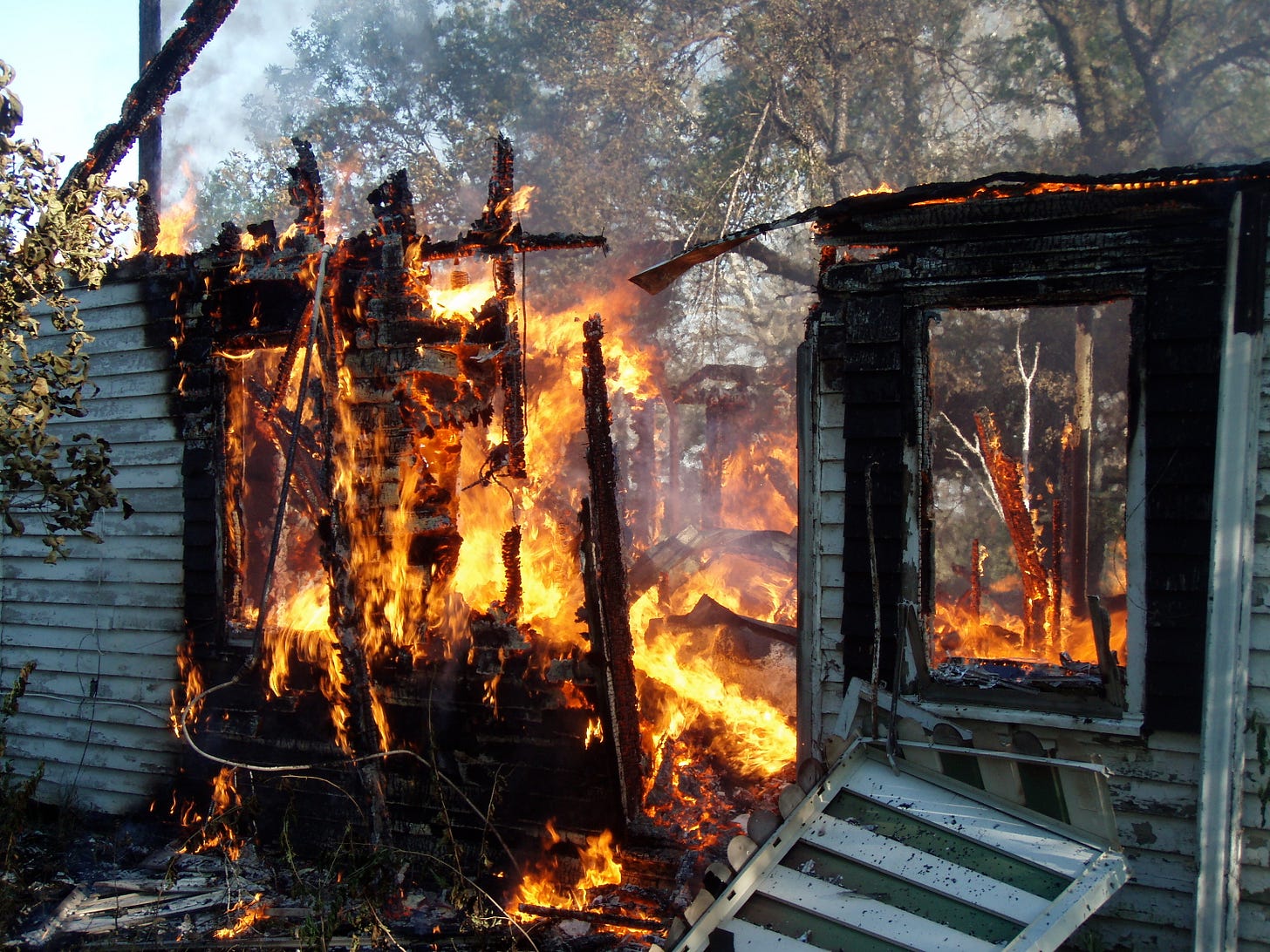Do you recall way back in March when I posted ISSUE: Insurance Sector Collapse?
California and Florida are in competition here - insurance companies are fleeing places that will generate massive waves of claims due to climate change related risk. We got lucky this year - we may have broken the million acre wildfire mark this week. That’s a huge relief over recent years, when one individual fire almost cracked the million acre mark on its own.
Florida, on the other hand, has just been hammered by Helene, and the mountain interior of the Carolinas has been scoured by dam bursting rainfall. This is the third major hurricane to hit Florida’s Big Bend in the last thirteen months. The video speculates that this may be the most costly hurricane in history. We won’t get a coherent report out of the interior for another week.
The worst has passed for California this year, but El Niño is ending and La Niña means epic drought. After three fairly wet years I expect we’ll basically explode in 2025, like we did during the 2020 and 2021 fire seasons. This is peak hurricane season but we’ve still got months to go and it’s thought that Florida’s Atlantic coast will see some excitement before winter tamps down activity.
Local Issues:
Insurance companies take an annual premium based on actuarial data, and mostly they’re right about the chances of trouble when looking at large problem spaces, say two of the largest U.S. states. When things are uncertain they have trouble, and when they’re certain they’re bad, but can’t judge precisely how bad, prudence dictates that they flee. That’s happened in both states, and it’s going to get worse, because of what has happened in Florida, and what will happen here soon enough.
The premium on the place I’m in now tripled this year, due to our marvelous East Bay back yard, despite the fact that we’ve vigorously addressed fire hazards right up to where state lands begin, and then snuck across the line to put in a bit of our own insurance by eliminating a fire prone invasive species. This place was paid off ages ago, a retirement dream for a union man who is no longer physically able to deal with stairs. The rent covers the premium, maintaining the asset for adult children who live elsewhere. This is a relatively unique situation; most homes in California have whopper mortgages.
And if you can’t afford coverage, or can’t get it at all, which is a growing problem, then you don’t get a mortgage. The value of a house plummets until the payment and premium make sense for the resident. Statistically, the most desirable locations in general are now the least desirable investments, which is going to lead to some curious demographics. If I stay long enough, I may eventually see a neighbor that’s younger than me.
Collapse:
Climate change is going to scour the insurance sector, just as Helene has done for the pretty little mountain towns in the Carolinas. The mortgage writers get stuck with property that can’t be insured, so it can’t be sold, except at catastrophic discounts, and I trust most of you recall the phrase “mortgage backed securities” from 2008. The follow on property tax hits the municipalities, and this downward spiral continues until the cost of a residence is commensurate with the risk it won’t be there next Tuesday.
Being from rural Iowa, I’ve already lived this once. I have hundreds of photos like this from around the time of the 2008 crash. Just needs a paint job, right? It’s abandoned, despite being in town, and too far gone to be recovered.
Someone assumed this would be reoccupied, the window protection tells you that. It’s on a paved highway, which is a desirable thing in Iowa, because the snowplows clear those roads first. Even so, it sat until something opened up unnoticed, and once nature gets in it doesn’t take long.
This is a not infrequent fate for abandoned houses. The fire department was there, making sure it didn’t spread, but this was a combined burn exercise/land clearing effort. The lot will be clear cut in the fall, a bulldozer will remove stumps and bury the foundation, and another acre of farmland will get put into service.
California and Florida will follow different paths than Iowa, because people still want to live here, but the familiar patterns are beginning to emerge.
Conclusion:
Politicians can bloviate about the climate change hoax as loudly as they want for as long as they’re able. Actuaries pay them no mind. Policies not grounded in reality might seduce humans, but corporations with a statistical understanding of the world are immune. I am curious to see how Ron “you can’t say climate change” DeSantis handles the undeniable fact that his state’s insurance sector is imploding.




